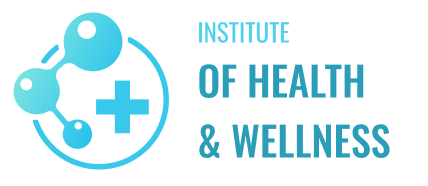Members of the Mass General Cancer Center team Elizabeth Gerstner, (from left), William Curry, Marcela Maus, Bryan Choi, Kathleen Gallagher, and Matthew Frigault.
Health
Novel teamwork, promising results for glioblastoma treatment
Researchers cite ‘academic medicine’ as key factor in success
It’s fitting that the investigators who developed a new CAR T-based treatment for glioblastoma called their treatment platform “CAR-TEAM” cells, as it was a true team effort to bring their concept from the lab to the clinic.
The team, led by Marcela Maus and Bryan Choi recently published a study detailing the promising preliminary results of a first-in-human trial for the new therapy, which was designed to target two different sites on glioblastoma tumors.
All three patients in the initial trial showed dramatic but transient reductions in tumor size in imaging scans taken after their treatments.
The team is now exploring ways to improve the longevity of the treatment, either by delivering multiple doses over time or by pairing the treatment with chemotherapy.
While the encouraging results of the trial are the biggest takeaway, just as inspiring is the team effort that went into taking a promising finding from mice in 2019 all the way to a first-in-human trial in 2023.
“That is not something that’s been done a lot historically in an academic medicine setting — basic laboratory research going all the way to clinical trials in patients,” said Maus. “But we’re doing it, and I think it’s really important what you can achieve as a field when you take that approach.”
From concept to preclinical studies
The concept for the trial started with Maus, the director of Cellular Immunotherapy Program at the Mass General Cancer Center and an associate professor of medicine at Harvard Medical School. Choi, a brain tumor neurosurgeon, associate director of the Center for Brain Tumor Immunology and Immunotherapy at the Mass General Cancer Center, and assistant professor at HMS, was conducting a two-year research fellowship in her lab at the time.
“I had this idea for how to make CAR T cells work for a brain tumor based on previous work we’ve done and previous work in the field, and Dr. Choi was a force of nature in making it happen,” Maus recalled.
“I feel fortunate and grateful to have been able to participate in this trial over the past nine months. It has given me hope .”
Tom Fraser, diagnosed with glioblastoma in 2021
Typically, CAR T cells target a single antigen or single tumor marker protein on the tumor cells. This treatment strategy has been highly effective in some forms of blood cancers that have a common antigen across tumor cells, such as lymphoma, but it has yet to be translated to solid tumors, which have a more diverse population of cells.
To address this challenge, Maus and Choi developed a second-generation treatment known as CAR-TEAM cells (T Cell Engager Antibody Molecules), which have a dual targeting mechanism that enables them to target two different proteins expressed by glioblastoma cells.
The first target was a common cancer mutation known as EGRFvlll. The second target was wild-type EGFR, a protein that is not detected in normal brain tissue but is expressed in more than 80 percent of cases of glioblastoma.
After successfully testing the treatment in mice in 2019, the team effort involved work with internal stakeholders to secure the necessary institutional and FDA approvals needed to translate the strategy to human patients.
Key collaborators in this process included Mass General’s Elizabeth Gerstner, a neuro-oncologist, Will Curry, director of neurosurgical oncology, Matthew Frigault, administrative director of the cell therapy service, and Kathleen Gallagher, director of the immune monitoring laboratory, along with dozens of experts across fields ranging from cell therapy to patient care.
“To accomplish this trial, we needed experts in cell therapy — people who are administering it routinely, who understand how it works in the body, how people respond to it, and we have a wholesale cell therapy service — directed by my friend and former co-fellow Dr. Matthew Frigault — dedicated to that,” says Choi.
Choi helped in setting everything up for the trial and facilitating the treatment itself, which was administered directly to the tumor site. “As a neurosurgeon for several of the patients, I’m involved in performing surgeries to resect tumors and to place the catheter that we were approved to administer CAR T cells through,” he said.
The team effort also included physician assistants and nurses at Mass General who had to familiarize themselves with study protocol, be on the lookout for potential toxicities after the treatment was administered, and to record the clinical data in a useful way to inform future work, said Choi.
“None of this was done in a vacuum,” added Maus. “We had a larger sphere of collaborators, including a data safety monitoring board, scientific review committee, institutional review board and the FDA.
“We’ve had graduate students and postdoctoral fellows in the lab, combinations of physicians, Ph.D. scientists, technicians, clinical investigators, regulatory affairs, manufacturing people.
“When you think about all the people involved in the study, it’s probably 80 to 100.”
Making a lasting impact
“Right now, this is still an early phase study,” said Maus. “We want to be able to make a very significant long-term impact in patients with glioblastoma, so the next arms of the study will take on new ways of sort of enhancing that response to the tumor.
“All of our members have been just incredible in their dedication, their thoughtfulness and their integrity. We’re all just rooting for the patients and for this to make a difference.”





